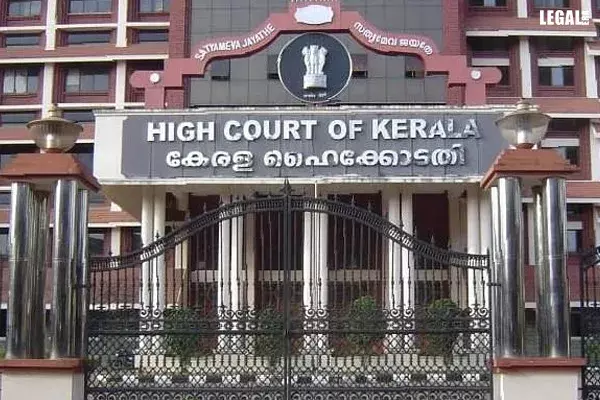Kerala High Court: If party fails to avail remedy within limitation period, it cannot further condone delay
The Kerala High Court by its single judge Justice Amit Rawal observed that the authority under the Payment of Gratuity Act;

Kerala High Court: If party fails to avail remedy within limitation period, it cannot further condone delay
The Kerala High Court by its single judge Justice Amit Rawal observed that the authority under the Payment of Gratuity Act cannot condone the delay in filing an appeal by entertaining an application under Section 5 of the Limitation Act.
The factual matrix of the case is that an application under Section 7(4) of the Payment of Gratuity Act was filed by a workman namely Sindhu S on the ground that he had been working as a Senior Computer Operator with effect from 5th October, 1998 and sought voluntary retirement on 16th March, 2018. At the time of retirement, he drew a sum of Rs. 26,725 as last drawn salary and claimed a sum of Rs. 3,80,831 as gratuity.
Controlling authority vide order dated 28th March, 2019 assessed the gratuity to the tune of Rs.2,92,947 by considering 19 years of length of service and taking into consideration of the last drawn salary of Rs.26,725. Accordingly, notice of payment of gratuity was served upon the petitioner- Sree Avittom Thirunal Hospital on 28th March, 2019. Petitioner vide reply dated 8th November, 2019 submitted that there was no scheme of gratuity or any fund when the respondent- State of Kerala and others, workman left the society. It was a charitable institution and performing functions without any financial assistance either from Government or Government agencies and requested to review the order dated 28th March, 2019.
The petitioner challenged the order of the authority by filing a writ petition, however withdrew with a liberty to avail the alternative remedy. The appeal accordingly was filed accompanied by an application for condonation of delay of one year.
Learned counsel appearing on behalf of the petitioner submitted that the remedy of appeal is to be availed under Section 7 of the Act to be preferred within a period of 60 days from the date of receipt of the order with a further condonation of 60 days in case, it could not be filed within 60 days as prescribed under Section 7 of the Act. Further stated that there is no exclusion of the applicability of the limitation Act and therefore the provisions of Section 29(2) of the Limitation Act, 1963 would be applicable.
On the contrary, learned counsel appearing for the respondent opposed stating that the petitioner did not exclude the applicability of the limitation Act and therefore the provisions of Section 29(2) of the limitation Act was pressed into service. The respondent vehemently asserted that on plain and simple reading of the language of Section 7(7) of the Payment of the Gratuity Act the applicability of limitation has been specifically excluded as the limitation to file an appeal in the first instance is sixty days and on explanation of sufficient ground can be preferred within a period of another sixty days and not beyond.
The Court discerned that Section 7(7) of the Payment of Gratuity Act and hat as per the provision, limitation to file an appeal against the order of the authority has been specified as sixty days condonable by a further period of sixty days subject to the explanation of prevention by giving a sufficient cause and not beyond.
The Court further considered Sections 5 and 29 of the Limitation Act apart from the other provisions in the said statute, and observed that, "as per the provisions of Section 29(2) of the Act where any special or local law prescribes for any suit, appeal or application a period of limitation different from the period prescribed by the Schedule, the provisions of Section 3 shall apply as if such period were the period prescribed by the Schedule and for the purpose of determining any period of limitation prescribed for any suit, appeal or application by any special or local law, the provisions contained in Sections 4 to 24 (inclusive) shall apply only in so far as, and to the extent to which, they are not expressly excluded by such special and local law."
The Court interpreted Sections 5 and 29 of the Limitation Act, as well as Section 7(7) of the Payment of Gratuity Act.
Lastly, the Court observed that, "it is evident that the legislature while enacting of Section 7(7) specifically excluded the application of limitation Act by providing the limitation of appeal for a period of 60+60 days. Otherwise, the limitation to file an appeal under the schedule of the limitation Act is thirty (30) days. Thus, for all intends and purposes, there cannot be any condonation of delay by taking the aid of the aforementioned provisions by entertaining an application under Section 5 of the Limitation Act," and accordingly dismissed the writ petition.

